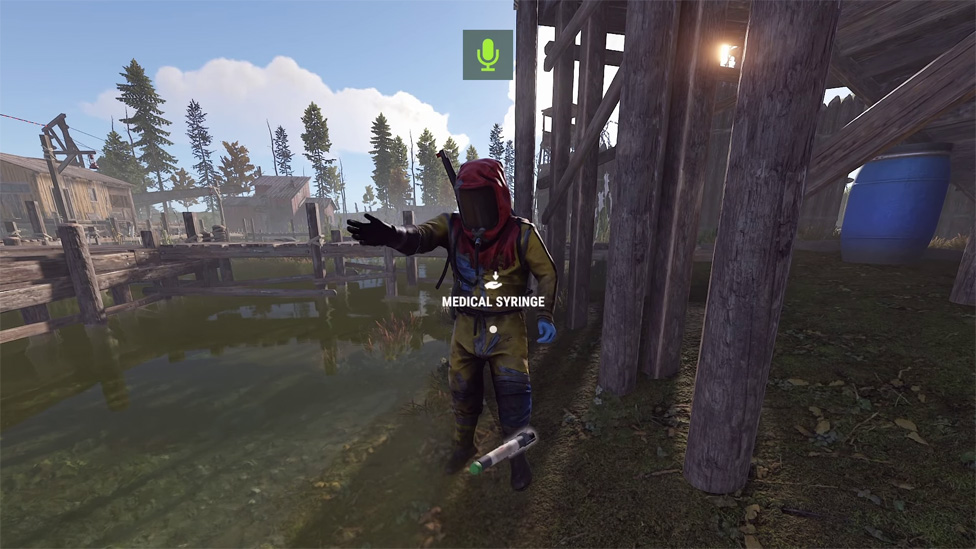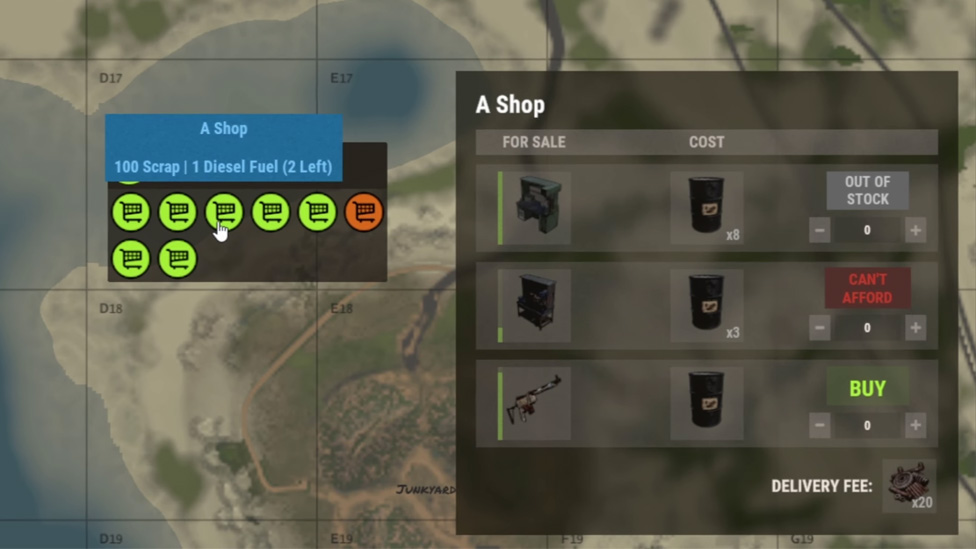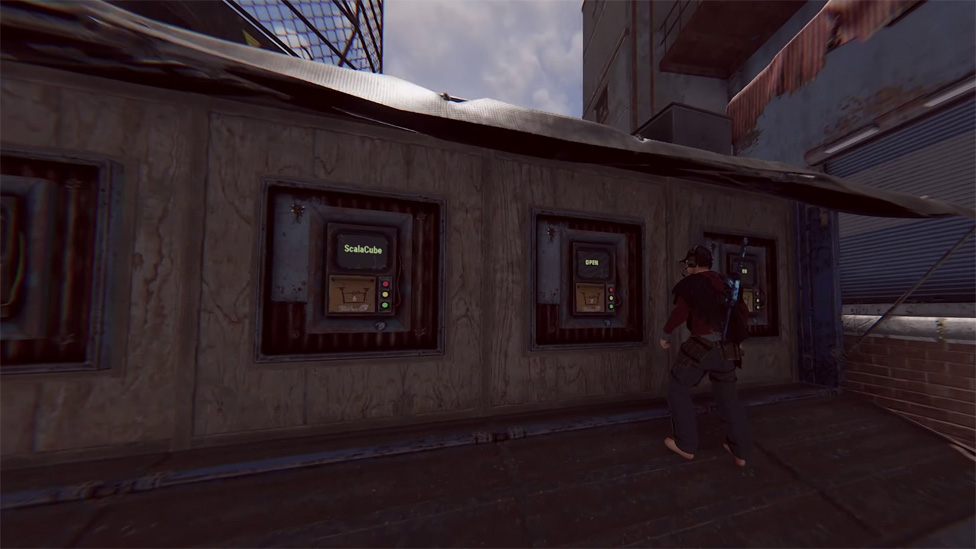Trading in Rust
Trading in Rust
Survival is key in this unforgiving world of Rust, and it's determined by the choices you make to succeed, whether it's by taking risks to outdo your opponent or collecting resources to avoid dying by starvation. As you play, you will find out the importance of Rust trading. It is a game-changer as it not only helps keep you alive but is essential in forming alliances, manipulating the economy, and outsmarting other players. In this article, we will break down the essentials of Rust trading, from player-to-player interactions to setting up your own shop. So, let's dive into the world of bartering and hustling.

Make Your Own Rust Server
Why Trading Matters in Rust
Before we break down the ways how to trade in Rust, let’s talk about why trading is important in the first place. First and foremost, you need to have a decent base and a solid supply of weapons and materials since Rust is about gathering resources and surviving against hostile players and the unsettling environment. You will realize that the game is also an economic simulator as it is a survival game.
Rust trading lets you access items that would otherwise take hours of dangerous grinding. Need a rifle but can’t find any gunpowder? Trade for it. Low on metal, but have more wood than you can carry? Swap it. This feature keeps you ahead of the competition.
There’s a social element to trading in Rust as well. The interaction may see new alliances formed (or potential targets). The creation of a dynamic economy, depending on server population, resource availability, and player power, adds depth to the game.
Player-to-Player Trading: Where Rewards Come At A Price
Player-to-player trading is a pretty straightforward way to trade in Rust. All you require is negotiation since there is no in-game menu for trading directly with another player. Since Rust is a survival game, you have no other choice but to do it the old-fashioned way: through conversation, trust, and taking a little bit of risk. The process works with you approaching another player and suggesting a trade.
Let’s say you have some extra metal ore, and you want to trade it for some sulfur. You will either drop your item on the ground or place it inside a storage box while the other player does the same since there’s no designated trading interface.
However, trust is important as you may be at risk of getting shot and other players take your stuff. This makes Rust trading tense and dangerous.
Rust allows players to strike long-term deals with a trustworthy trading partner or an ally. Regular trading partners make your life a lot easier in Rust, especially if you specialize in different areas of resource gathering.
Avoid Danger Using Safe Zones and the Outpost
Don’t want to get shot in the face during a trade? You’re in luck because Rust allows you to trade at the Outpost. The Outpost is a safe zone where players can trade with each other without fear of combat. It’s essentially the game's marketplace where players gather, barter, and trade items in peace.The Outpost has vending machines that offer items for scrap (the game’s main currency). This allows you to safely buy and sell items without interacting directly with other players. They can be incredibly useful for acquiring basic materials or selling off items you don’t need.
The striking feature of Output is that it attracts casual traders who don’t want the constant tension of PvP during every trade. Remember, safe zones like the Outpost have strict rules. You will be marked hostile when firing a weapon or attacking someone, prompting the NPC guards to shoot you on sight.

Setting Up a Shop with Vending Machines
Trading enthusiasts in Rust can take it to the next level by setting up their own vending machines. Vending machines let players automate their trades by offering items for sale even if they are offline or busy raiding. You can set up a vending machine at your base, list the items you’re selling, and set the price in scrap or other items. These machines establish your own mini-economy on the server and become a central figure in the trading scene
You can set a vending machine up in the following ways:
- Crafting or Setting Up a Vending Machine: You can either build one from scratch using metal frags, gears, and wood or find those scattered across the Rust world. Once it's collected or made, place it near your base or in a high-traffic area.
- Load Up The Machine With Items: Add the items you want to sell and set a price. Players typically trade for scrap, but you can also set it up to accept other resources.
- Promote Your Shop and Offerings: The vending machine will appear on the map when it's stocked. This lets other players know you have goods up for sale. Keep your prices competitive and ensure that the machine is in a safe location to attract customers.
Scrap: The Unofficial Rust Currency
Scrap is the unofficial currency of Rust, and most players use scrap to buy and sell items. They are a versatile resource used for crafting tech trees, research, and purchasing items at the Outpost. This means they are highly sought after and can be used for trading pretty much anything.As a trader, you would want to accumulate as much scrap as possible. Here are a few tips for gathering and trading scrap effectively:
- Loot Barrels and Crates: The quickest way to gather scrap is to smash those crates and barrels filled with scrap. They are mostly spawned in monuments and high-traffic areas.
- Recycle: Don’t ignore the recycling machines scattered around monuments. Recycling components and unwanted items give you a steady stream of scrap.
- Trade Scrap for Rare Items: Trade your stockpile of scrap rather than hoarding it. Scraps can be exchanged for high-value items like guns, explosives, and armor, which can give you an edge in this game.
How Trading Forms Alliances and Fuels Rivalries
One of the cool things about Rust trading is that it enhances relationships and interactions with other players. This is a great way to avoid conflict and form alliances. The more you trade with the same players regularly, higher the chances are that you end up teaming up with them.
However, trading can also fuel rivalries. Let's say you trade for some valuable explosives and then use them to raid the base of the guy you traded with. You may even want to spend the rest of your Rust life seeking revenge against the player(s) who swindled you.
Rust trading can be as cutthroat as the PvP combat, and that’s what makes it so exciting.

Final Thoughts
Rust trading adds a whole new layer of strategy and interaction to the game. If you're serious about dominating your trading ventures, consider Rust server hosting to have full control of your environment and ensure smooth gameplay. So go ahead, get out there, and start making deals.
Just keep your gun handy in case you run into shady players who may do you wrong.
FAQs
Can I safely trade with other players without being killed?
Yes! you can safely trade with other players in the Outpost which is a designated safe zone where combat is not permitted.
What’s the best way to get scrap for trading?
The easiest way to get scrap is by looting barrels, crates, and monuments.
How do vending machines work in Rust?
Vending machines let you automate trades by listing items for sale and setting a price. After the items are stocked, your vending
machine appears on the map, and other players can come to buy your items without direct interaction.
Make Your Own Rust Server
Copyright 2019-2026 © ScalaCube - All Rights Reserved.